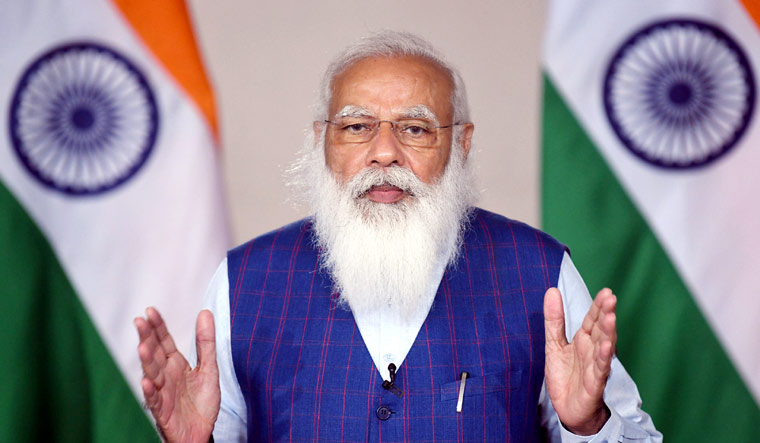In a stinging editorial, medical journal Lancet came down hard on the Modi government, blaming the Centre for what it termed as mismanagement of the crisis and for "seeming more intent on removing criticism on Twitter than trying to control the pandemic".
"The scenes of suffering in India are hard to comprehend. As of May 4, more than 20·2 million cases of COVID-19 had been reported, with a rolling average of 378 000 cases a day, together with more than 222 000 deaths, which experts believe are likely to be substantial underestimates. Hospitals are overwhelmed, and health workers are exhausted and becoming infected. Social media is full of desperate people (doctors and the public) seeking medical oxygen, hospital beds, and other necessities. Yet before the second wave of cases of COVID-19 began to mount in early March, Indian Minister of Health Harsh Vardhan declared that India was in the “endgame” of the epidemic. The impression from the government was that India had beaten COVID-19 after several months of low case counts, despite repeated warnings of the dangers of a second wave and the emergence of new strains. Modelling suggested falsely that India had reached herd immunity, encouraging complacency and insufficient preparation, but a serosurvey by the Indian Council of Medical Research in January suggested that only 21 per cent of the population had antibodies against SARS-CoV-2," according to the editorial.
As of Sunday, India had recorded 4,03,738 fresh COVID-19 cases in a day, which pushed the tally to 2,22,96,414. The death toll climbed to 2,42,362 with 4,092 daily deaths. Registering a steady increase, the active cases have increased to 37,36,648, comprising 16.76 per cent of the total infections, while the national COVID-19 recovery rate was recorded at 82.15 per cent.
There were allusions to the Kumbh festival and the mega rallies amid Bengal polls.
"Despite warnings about the risks of superspreader events, the government allowed religious festivals to go ahead, drawing millions of people from around the country, along with huge political rallies—conspicuous for their lack of COVID-19 mitigation measures."
"The crisis has not been equally distributed, with states such as Uttar Pradesh and Maharashtra unprepared for the sudden spike in cases, quickly running out of medical oxygen, hospital space, and overwhelming the capacity of cremation sites, and with some state governments threatening those asking for oxygen or a hospital bed with national security laws. Others, such as Kerala and Odisha, were better prepared, and have been able to produce enough medical oxygen in this second wave to export it to other states."
The magazine stated that India must now pursue a two-pronged strategy, with a quick vaccination campaign, working with local and primary health-care centres that know their communities and create an equitable distribution system for the vaccine. "Second, India must reduce SARS-CoV-2 transmission as much as possible while the vaccine is rolled out. As cases continue to mount, the government must publish accurate data in a timely manner, and forthrightly explain to the public what is happening," the Lancet said.




